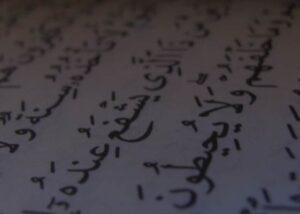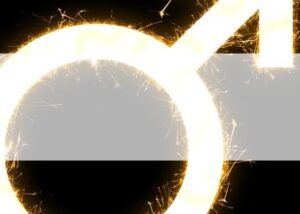Is reading Surah Ikhlas (Qul Hu Walahu Ahad) equal to reciting one third of the Holy Quran?
Quran
Hadith
Islamic Text
Yes, reading Surah Ikhlas (Qul Hu Walahu Ahad) is equal to reciting one third of the Holy Quran. This has been mentioned in numerous Sahih Hadith narrations.
عَنْ أَبِي سَعِيدٍ الخُدْرِيِّ، أَنَّ رَجُلًا سَمِعَ رَجُلًا يَقْرَأُ قُلْ هُوَ اللَّهُ أَحَدٌ يُرَدِّدُهَا، فَلَمَّا أَصْبَحَ جَاءَ إِلَى النَّبِيِّ صَلَّى اللهُ عَلَيْهِ وَسَلَّمَ فَذَكَرَ لَهُ ذَلِكَ، وَكَأَنَّ الرَّجُلَ يَتَقَالُّهَا، فَقَالَ رَسُولُ اللَّهِ صَلَّى اللهُ عَلَيْهِ وَسَلَّمَ: «وَالَّذِي نَفْسِي بِيَدِهِ، إِنَّهَا لَتَعْدِلُ ثُلُثَ القُرْآنِ
Abu Sa`id Al-Khudri narrated that a man heard another man repeatedly reciting: Say He is Allah, the One (Surah al-Ikhlaas, 1). In the morning, he went to the Prophet ﷺ and informed him about it, as if he considered that the recitation was insufficient. So the Messenger of Allah ﷺ said, ‘By Him in Whose Hand is my soul, indeed it is equal to one-third of the Qur’an.’ (Sahih al-Bukhari, 7374).
The Hadith narration above is explicit regarding the fact that Surah al-Ikhlas (Qul Hu Walahu Ahad) is equal to one-third of the Holy Quran. There are many similar narrations in Bukhari (5013, 5015, 6643) and Muslim (811 – 259, 812 – 261, 812 – 262). However, there is considerable discussion and difference of opinion amongst scholars regarding the meaning of the Hadith.
قَالَ الْكرْمَانِي فَإِن قلت كَيفَ تكون معادلة للثلث وَلَا شكّ أَن الْمَشَقَّة فِي قِرَاءَة ثلث الْقُرْآن أَكثر من قرَاءَتهَا بِكَثِير وَالْأَجْر بِقدر النصب قلت قِرَاءَة السُّورَة لَهَا ثَوَاب قِرَاءَة الثُّلُث فَقَط وَأما قِرَاءَة الثُّلُث فلهَا عشر أَمْثَالهَا. (عمدة القاري شرح صحيح البخاري)
Al-Karmani said, if you say, how can it equal a third (of the Quran), when there is no doubt that the exertion in reciting a third of the Quran far exceeds reciting it. And reward is dependent upon effort. I say, reciting the Surah brings about the reward of reciting a third (of the Quran). However, reciting the third itself causes a ten-fold multiplication (of the reward). (Umdatu al-Qari, Imam Badr al-Deen al-Ayni).
The Nass above mentions just one of several opinions regarding the meaning of the Hadith. The central issue the scholars discuss is the difference between actually reciting a third of the Holy Quran and reciting Surah Ikhlas. They tend to accept the fact that reciting an actual third of the Holy Quran is superior, but the discussion is regarding the details.
Usually, the best approach regarding matters that have not been specified in Quran and Hadith is to consign the issue to Allah Most High (Tafweed). We simply say, Allah Most High Knows best. This approach was also narrated by Imam Badr al-Deen al-Ayni in his commentary on Sahih al-Bukhari:
وَقَالَ أَبُو عمر: نقُول بِمَا ثَبت عَن النَّبِي صلى الله تَعَالَى عَلَيْهِ وَسلم، وَلَا نعده وَنكل مَا جهلناه من مَعْنَاهُ فنرده إِلَيْهِ، صلى الله تَعَالَى عَلَيْهِ وَسلم، وَلَا نَدْرِي لم تعدل هَذِه ثلث الْقُرْآن. (عمدة القاري شرح صحيح البخاري)
Abu Amr said, we say that which has been authenticated from the Prophet ﷺ we do not discuss the calculation or delve into that which we do not know. We consign the issue to him . We do not know why it is equal to a third of the Quran. (Umdatu al-Qari, Imam Badr al-Deen al-Ayni).
Tafweed is best when we are dealing with matters that are not related to Fiqh (Islamic law). With regards to legal issues (Fiqh) scholars are required to make Ijtihad to try to derive legal rulings.
And Allah Most High Knows Best.
-Answered by Shaykh Noorud-deen Rashid (02.07.2022)
See also:
Surah al-Waqiah, Verse 79 Explanation
See also video:






